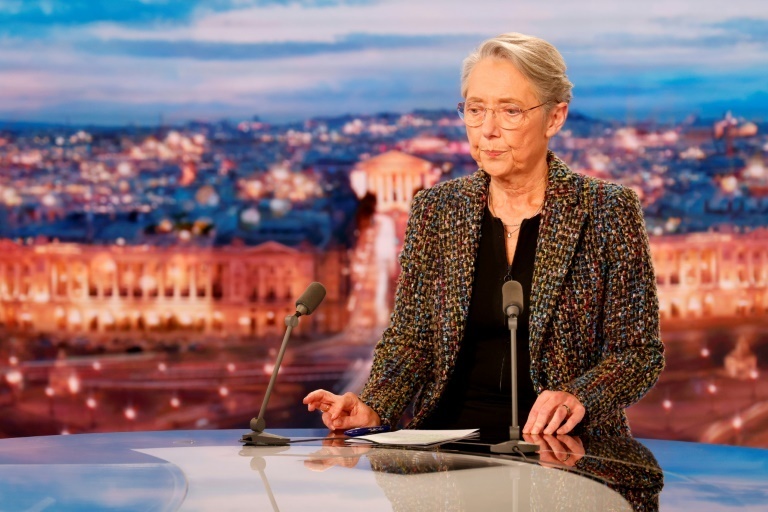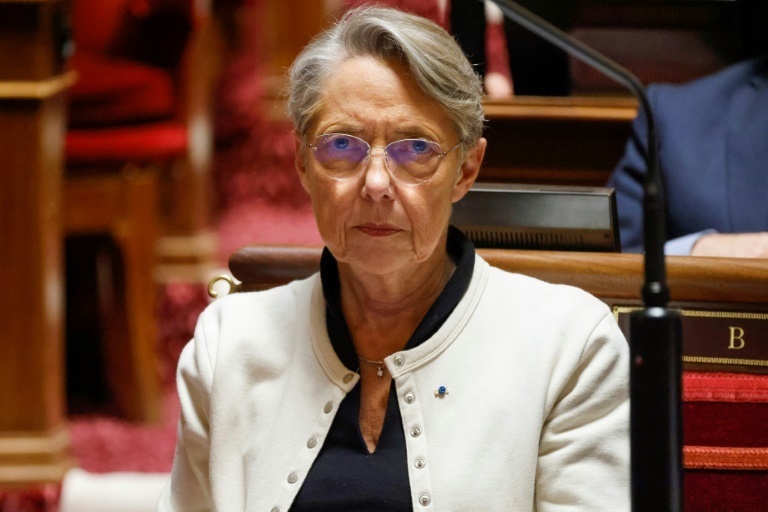France's Prime Minister Elisabeth Borne, who has pushed through a controversial pensions overhaul without a parliament vote, is an experienced technocrat known for her resilience.
The 61-year-old engineer in May last year became the first woman to head a French government in three decades.
When she took office, she dedicated the moment to "all the little girls".
"Follow your dreams, nothing must slow the fight for women's place in our society," she said.
Borne had proven her loyalty to President Emmanuel Macron during his first term, serving as transport, environment and finally labour minister from 2020.
During Macron's second and last stint in office, she has as premier staunchly defended his flagship pensions reform to raise the retirement age from 62 to 64.
She has championed the bill both in parliament and several television interviews, while the centrist president has made very few public comments on the topic.
On Thursday, she stoically withstood boos and jeers in parliament as she deployed a controversial executive power to force through the legislation without a vote in the hung lower house.
She invoked article 49.3 of the constitution, despite previously saying she did not want to use it and after two months of nationwide demonstrations protesting against the reform.
- 'The fuse' -
An adviser to the president said Borne had been willing to take the fall for the deeply unpopular move.

But hours later, in an interview with the TF1 broadcaster, she evaded a question about whether she was ready to sacrifice herself for the pensions overhaul.
"This is not a personal issue," she said.
"The issue here is to ensure the future of our pensions system."
Thursday was the eleventh time Borne has invoked article 49.3 to ram through a bill since becoming head of government.
That puts her second in the ranking of prime ministers who have most used the measure, behind Michel Rocard who from 1988 to 1991 rolled it out 28 times.
Opposition lawmakers have filed for a vote of no confidence in the government next week, which they hope will bring down Borne and repeal the pensions bill.
But many believe she will survive it thanks to backing from conservative Republican lawmakers.
- 'Weakened' -
"She has been weakened by the use of article 49.3," said another adviser to the president.
But "if the no-confidence motion is rejected, the reform will be adopted and she won't have lost the battle," they said.

They said she had "a lot of spring" in her.
France's first female prime minister Edith Cresson lasted under 11 months in the early 1990s, during which time she endured sexism.
Socialist senator Laurence Rossignol said Borne was different.
"She is respected as a woman," Rossignol said, but added that "as prime minister, she can be critcised".
France's second-ever female prime minister was born in Paris and studied at the elite Ecole Polytechnique.
Little is known about her private life, apart from that she was born to a mother with very little income and a father who took his own life when she was just 11 years old.
Her Jewish father had been deported to Auschwitz during World War II and survived the Nazi death camp, but had never fully recovered, she has said.
A lover of maths, Borne has said she finds in numbers "something quite reassuring, quite rational".
burs-are-ah/lcm/dhc
© Agence France-Presse
Your content is great. However, if any of the content contained herein violates any rights of yours, including those of copyright, please contact us immediately by e-mail at media[@]kissrpr.com.
Source: Story.KISSPR.com

